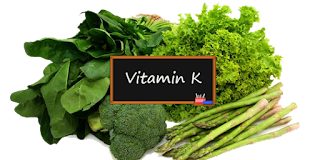Introduction
Understanding the Importance of Vitamin K and Recommended Daily Intake. In the intricate tapestry of human health, certain vitamins play indispensable roles, and vitamin K stands out as a key player. Its significance extends beyond its commonly known role in blood clotting, encompassing crucial contributions to bone health and more. This article delves deeper into the multifaceted world of vitamin K, exploring its functions, recommended daily intake, dietary sources, and potential implications of deficiency or excess.
What is Vitamin K?
Vitamin K comprises two main forms: K1 (phylloquinone) and K2 (menaquinone). K1 is predominantly found in green leafy vegetables, while K2 is present in fermented foods and animal products. These forms work synergistically, ensuring various bodily functions operate smoothly.
Functions of Vitamin K
1. Blood Clotting: The coagulation cascade, a complex series of events leading to blood clot formation, relies heavily on vitamin K. Deficiencies can result in prolonged bleeding, making this vitamin crucial for preventing excessive blood loss.
2. Bone Health: Beyond its role in clotting, vitamin K plays a pivotal role in bone metabolism. It regulates calcium within bones, influencing bone mineralization and density. Adequate vitamin K levels are associated with a lower risk of fractures and conditions like osteoporosis.
Recommended Daily Intake
Understanding the recommended daily intake of vitamin K is vital for maintaining optimal health. The National Institutes of Health (NIH) suggests an average daily intake of around 90 micrograms for women and 120 micrograms for men. However, individual needs may vary, influenced by factors such as age, sex, and overall health. Consulting healthcare professionals can provide personalized recommendations.
Sources of Vitamin K
1. Leafy Greens: Incorporating kale, spinach, and broccoli into your diet ensures a robust intake of vitamin K1.
2. Fermented Foods: Explore options like natto, a Japanese dish made from fermented soybeans, to boost your vitamin K2 levels.
3. Animal Products: Eggs, cheese, and meat are excellent sources of vitamin K2, contributing to overall intake.
Deficiency and Excess:
A deficiency in vitamin K can result in an increased risk of bleeding disorders, emphasizing the importance of meeting daily intake recommendations. While vitamin K toxicity is rare, balance is key, and excessive supplementation should be approached with caution. Monitoring intake through a diverse and balanced diet is the most effective approach.
Influence on Cardiovascular Health
Recent research has suggested potential links between adequate vitamin K levels and cardiovascular health. Some studies propose that vitamin K may contribute to reducing arterial calcification, thereby supporting heart health. However, more research is needed to establish definitive connections.
Conclusion
In the symphony of nutrition, vitamin K plays a harmonious tune, orchestrating essential functions for our well-being. From ensuring proper blood clotting to fortifying our skeletal structure, its role is vast and interconnected. Embracing a diverse diet rich in vitamin K sources empowers individuals to support their health comprehensively. Always seek guidance from healthcare professionals to tailor recommendations to your unique health profile, ensuring a melody of well-being resonates throughout your life.









